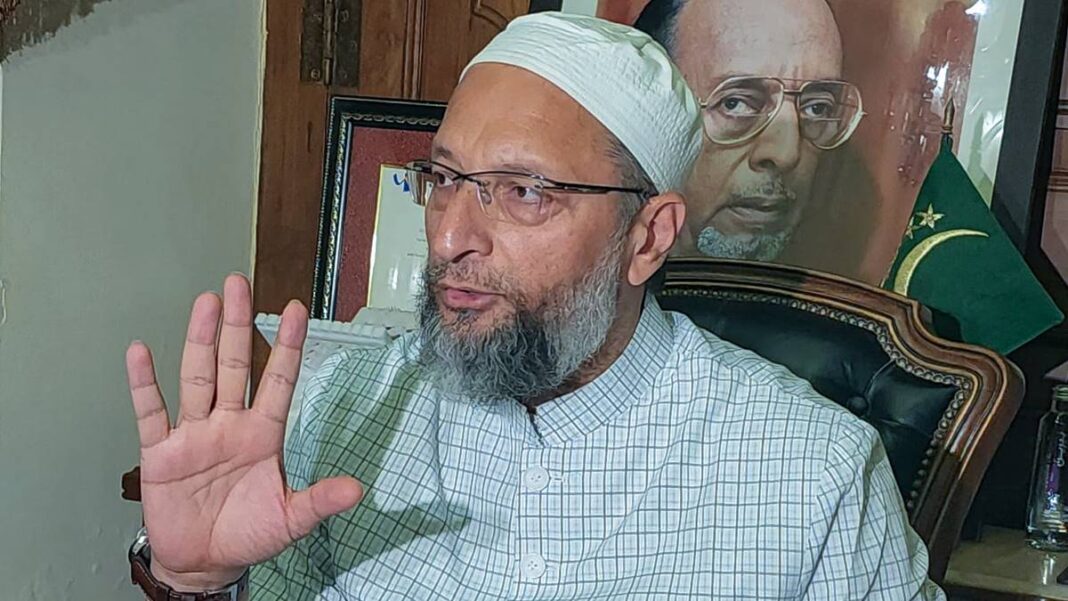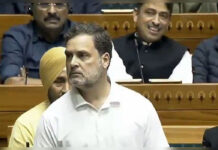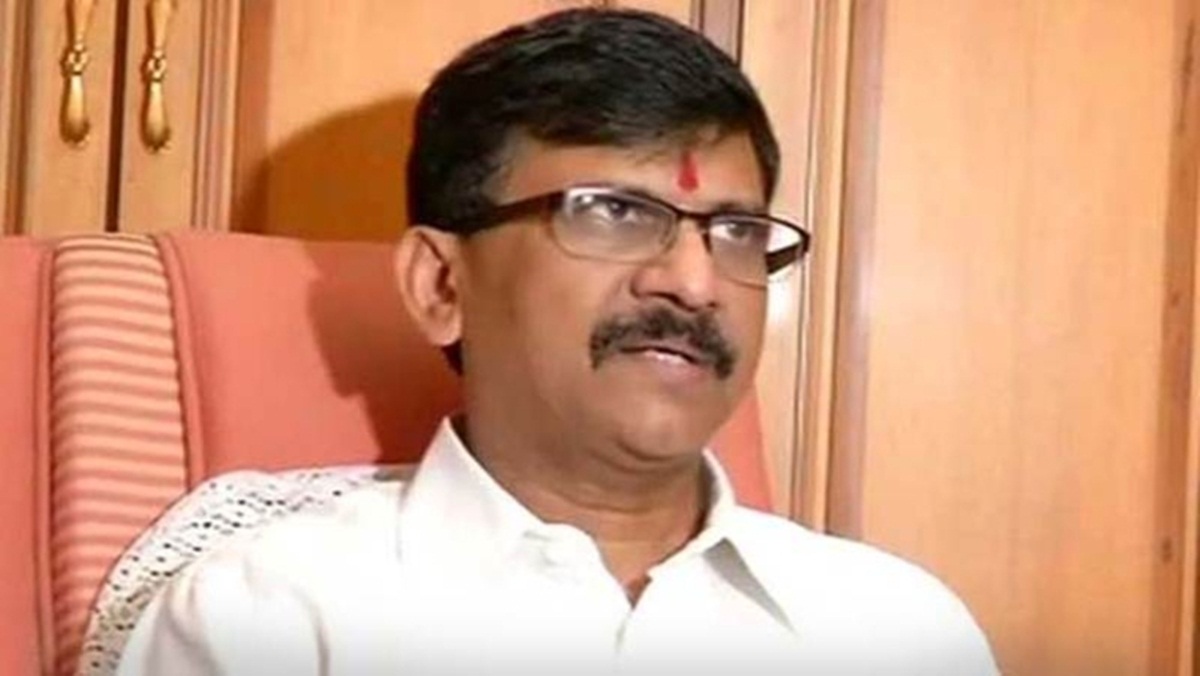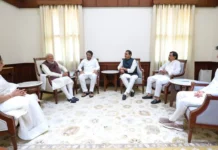X: @the_news_21
AIMIM chief Asaduddin Owaisi has criticized the Uniform Civil Code (UCC) bill tabled in Uttarakhand, denouncing it as a “Hindu Code” that excludes certain communities and violates constitutional principles. Owaisi contends that the proposed law grants exemptions to Hindus and tribals while imposing a uniform standard on Muslims, thereby infringing upon their fundamental rights.
In a statement today, Owaisi expressed his disapproval of the Uttarakhand UCC Bill, characterizing it as discriminatory and unjust. He highlighted the glaring omission of Hindu undivided families from the purview of the bill, questioning the validity of a purportedly uniform law that does not apply to the majority population of the state.
Drawing attention to the selective focus on certain contentious issues like bigamy, halala, and live-in relationships within the UCC discourse, Owaisi criticized the silence surrounding the exclusion of Hindu undivided families and tribals. He argued that true uniformity cannot be achieved when specific communities are exempted from the code.
Owaisi underscored the constitutional and legal ramifications of the bill, particularly its impact on the religious and cultural practices of Muslims. He asserted that the UCC compels Muslims to adhere to customs and traditions alien to their faith, infringing upon their rights enshrined in Articles 25 and 29 of the Constitution.
Furthermore, Owaisi raised concerns regarding the legality of the bill, emphasizing that it contradicts existing legislation such as the Shariah Act, Hindu Marriage Act, Special Marriage Act (SMA), and Indian Succession Act (ISA). He argued that enacting such a law without due consideration for existing legal frameworks would lead to confusion and legal challenges.
Highlighting the existence of voluntary uniform civil codes such as the SMA, ISA, Juvenile Justice Act (JJA), and Domestic Violence Act (DVA), Owaisi questioned the need to enforce mandatory compliance with the UCC. He cited the views of Dr. B.R. Ambedkar, who did not advocate for mandatory implementation of the UCC during the framing of the Constitution.
As the debate surrounding the Uttarakhand UCC Bill intensifies, Owaisi’s critique underscores broader concerns regarding religious freedom, cultural autonomy, and legal consistency in the formulation of civil laws.
Also Read: Dhule Police Launches Operation to Ensure Public Safety Ahead of Lok Sabha Elections








clomid remedio clomid tablets price uk clomid pills cost of generic clomid pills how can i get cheap clomiphene without prescription can you get clomiphene for sale clomid price in usa
This is the compassionate of literature I positively appreciate.
More posts like this would bring about the blogosphere more useful.
buy azithromycin 500mg online – order tindamax sale metronidazole where to buy
buy rybelsus 14 mg for sale – buy cyproheptadine 4 mg for sale periactin 4 mg cheap
buy domperidone tablets – flexeril pill order cyclobenzaprine sale
order augmentin 1000mg online cheap – atbioinfo buy acillin generic
buy nexium medication – nexiumtous order esomeprazole 20mg pill
warfarin price – cou mamide buy losartan medication
buy generic meloxicam 7.5mg – https://moboxsin.com/ meloxicam price
brand prednisone 10mg – https://apreplson.com/ deltasone 10mg without prescription
order generic amoxil – https://combamoxi.com/ amoxicillin usa
buy cenforce 50mg for sale – https://cenforcers.com/ cenforce 50mg generic
what is cialis tadalafil used for – site typical cialis prescription strength
buy zantac 300mg for sale – buy zantac generic zantac without prescription
More posts like this would create the online time more useful. https://gnolvade.com/es/gabapentina-300-mg-capsulas/
With thanks. Loads of expertise! buy cheap amoxil
Thanks an eye to sharing. It’s acme quality. https://ondactone.com/simvastatin/
This is the make of enter I unearth helpful.
https://proisotrepl.com/product/cyclobenzaprine/
This website absolutely has all of the bumf and facts I needed adjacent to this participant and didn’t comprehend who to ask. http://zqykj.cn/bbs/home.php?mod=space&uid=302446
cheap dapagliflozin – order dapagliflozin 10 mg generic forxiga without prescription
purchase orlistat pills – https://asacostat.com/ orlistat 60mg oral
Thanks an eye to sharing. It’s top quality. http://www.cs-tygrysek.ugu.pl/member.php?action=profile&uid=98758
You can shelter yourself and your stock by way of being wary when buying panacea online. Some pharmacy websites manipulate legally and sell convenience, secretiveness, bring in savings and safeguards to purchasing medicines. buy in TerbinaPharmacy https://terbinafines.com/product/aricept.html aricept
I’ll certainly carry back to be familiar with more.
kuwin sở hữu kho game đa dạng từ slot đến trò chơi bài đổi thưởng, mang đến cho bạn những giây phút giải trí tuyệt vời.
Tham gia cộng đồng game thủ tại Go88 để trải nghiệm các trò chơi bài, poker phổ biến nhất hiện nay.
采用高效谷歌站群策略,快速提升网站在搜索引擎中的可见性与权重。谷歌站群
Với giao diện mượt mà và ưu đãi hấp dẫn, MM88 là lựa chọn lý tưởng cho các tín đồ giải trí trực tuyến.
iwin – nền tảng game bài đổi thưởng uy tín, nơi bạn có thể thử vận may và tận hưởng nhiều tựa game hấp
iwin – nền tảng game bài đổi thưởng uy tín, nơi bạn có thể thử vận may và tận hưởng nhiều tựa game hấp
Tham gia cộng đồng game thủ tại Go88 để trải nghiệm các trò chơi bài, poker phổ biến nhất hiện nay.
online blackjack olga
best mobile casino real money
best usa online casino
mgmbets betmgm-play betmgm FL